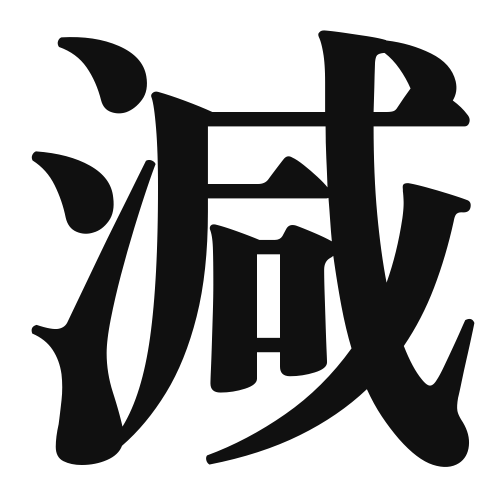1. Overview of Meaning
The kanji “減” (gen) means “to decrease” or “to reduce.” It is often used in contexts where something is being diminished in quantity, size, or intensity.
2. Formation and Radical
The kanji “減” is a compound character that combines elements to convey its meaning. It consists of the radical 氵 (water) and the character 減 itself, which suggests a reduction or decrease, often associated with the idea of water levels dropping.
The radical 氵 indicates a connection to water, which can symbolize fluidity and change, aligning with the concept of reduction.
3. Examples of Usage
Common words and phrases that include “減” are:
- 減少 (genshō) – decrease
- 減税 (genzei) – tax reduction
- 減量 (genryō) – weight loss
Example sentences in daily conversation:
- このプロジェクトのコストを減らす必要があります。
- (We need to reduce the costs of this project.)
4. Synonyms and Antonyms
Similar kanji with related meanings include:
- 削減 (saku-gen) – to cut down or reduce, often used in a more formal context.
Antonyms include:
- 増 (zō) – to increase or add.
5. Cultural and Historical Background
The kanji “減” is often used in Japanese culture to discuss topics such as environmental conservation, where reducing waste is emphasized. It appears in various proverbs and idiomatic expressions, such as:
- 減るも増えるも (heru mo fueru mo) – “to decrease or increase,” often used to describe the ups and downs of life.
This reflects the cultural understanding of balance and moderation in Japanese society.
